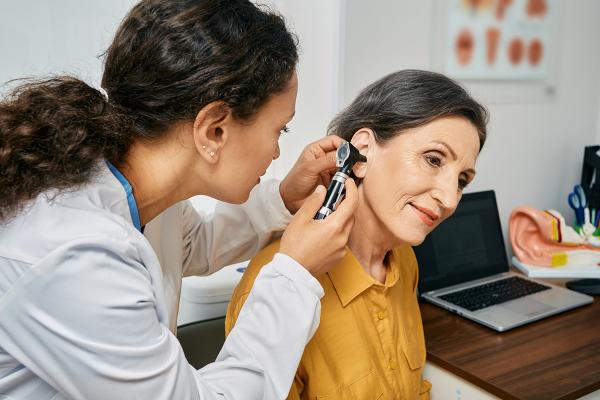
EPIC Hearing Healthcare helps members access hearing exams, hearing aids and more. Sign in to learn more and check eligibility.
Are you a fan of live music? Learn what to do at any type of concert to get the most out of it.

Wearing hearing aids comes with many benefits. These devices may help you hear certain sounds more clearly, including ones that bring you joy. Birds singing. Your grandchild’s giggle. A conversation with friends over coffee.
And if you enjoy going to concerts, hearing aids might help you hear the music better. That’s true whether you’re a fan of symphonies, jazz or rock.
All you need is a good hearing care professional to help you program your devices.
To learn how to get the most out of your next concert, read on.

EPIC Hearing Healthcare helps members access hearing exams, hearing aids and more. Sign in to learn more and check eligibility.
Hearing aids aren’t perfect. As good as they are, you probably won’t hear the way you used to.1 That said, a hearing care professional can help you set programs for a wide range of activities, says Kathy McGowan, Au.D. She’s an audiologist at Beltone in Chicago.
That includes the music you listen to (and the restaurants you go to after the concert). There are standard music programs that come with most hearing aids. Or your hearing care professional can help you set up a custom-made one.
“And when you are ready to go into that concert, you get out your phone, tap the concert button and your hearing instruments switch to concert mode,” McGowan says.
Your hearing care professional will probably ask you about your activities, including the live music you listen to. “That way, we can make sure we program that device to you specifically,” says McGowan.
But if they don’t, bring it up yourself. Be specific, too. If you love jazz and rock, for instance, let the hearing care professional know. They may be able to show you how to adjust for different types of music. And because music can change from one tune to the next, they can also show you how to adjust in real time.2
Through EPIC Hearing Healthcare, you get up to 3 follow-up visits at no extra cost and a trial period to try out your new prescription hearing aids. Learn more.
Some concert halls have technology that transmits sound directly into people’s devices, minus the background noise. It's called a hearing loop.3 To pick up the music, your hearing aid must have something called a t-coil. This is a wire coil inside the hearing aid.
Call ahead to see if the venue has some kind of hearing loop. They may even have a new type of technology called Auracast, which is a feature of Bluetooth.4
These types of technology work better during classical music concerts. That’s because classical performances aren’t as loud as rock or big band concerts.
Sounds over 85 decibels for several hours could start to damage your hearing. That goes double for people with hearing aids, whose hearing is already damaged, says McGowan. To protect your ears from more harm, do the following when you attend any type of concert.
Download a sound level meter. There are many apps that measure how loud your surroundings are. When the sound goes over 90 decibels, it’s time for more hearing protection.
Bring earmuffs. If things get loud or you are at a rock concert, slip a pair of protective earmuffs over your ears and hearing aids. That way, you can still hear someone speaking between songs, suggests McGowan.
Take off your hearing aids. You may not need your hearing aids at all if the space is small and the band is loud.
Choose outdoor concerts. The sound is not so concentrated as at indoor venues because it has a wider area to travel, McGowan explains.
Sit in the back, away from the stage or the sound speakers. In fact, you should sit at least 10 feet away from speakers.5 That goes for outdoor concerts as well as indoor ones.
Take breaks to head for quieter spots, either outside or farther away from the stage. This will give your ears a break.5
Many of these tips apply to family members and friends who don’t wear hearing aids as well. If the music is loud, it’s a good idea for everyone in your group to protect their hearing.
Sources
Information is for educational purposes only and is not a substitute for the advice of a licensed medical provider. Consult your provider prior to making changes to your lifestyle or health care routine.
Hearing aids purchased in the Silver technology level will receive 1 follow-up visit.